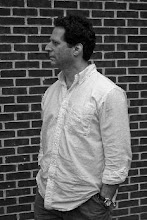 Sleep teaching is a popular culture meme. I'm not sure where I first encountered the concept but it must have been some TV show wherein a character goes to sleep wearing headphones and wakes up speaking fluent Spanish or something. Were I a more pretentious person, I would claim to have first encountered the concept from Huxley's Brave New World, in which sleep teaching is used to render the various castes content with their place in society: "I'm so glad I'm a Beta." I rather suspect that Brave New World may be the well-spring of the popular meme.
Sleep teaching is a popular culture meme. I'm not sure where I first encountered the concept but it must have been some TV show wherein a character goes to sleep wearing headphones and wakes up speaking fluent Spanish or something. Were I a more pretentious person, I would claim to have first encountered the concept from Huxley's Brave New World, in which sleep teaching is used to render the various castes content with their place in society: "I'm so glad I'm a Beta." I rather suspect that Brave New World may be the well-spring of the popular meme. According to Wikipedia, a study in 1956 concluded that sleep-teaching is hogwash, which has been the scientific consensus since that time. Now guess what--a new study finds evidence that sleep teaching actually does have an effect.
The new study was undertaken by Ph.D. student John Rudoy and colleagues and Northwestern University. It differs perhaps from earlier studies in combining awake learning with sleeping review. The subjects of the study learned (while awake) the randomly assigned positions on a diagram of 50 objects such as teakettles and wineglasses. Each object was accompanied by a relevant sound such as the whistle of a kettle or the sound of breaking glass. Then the subjects took a short nap, during which the associated sounds for 25 of the 50 objects were played--at a level too low for conscious awareness. Afterwards, the subjects were tested on recalling the locations of all 50 objects. Recall was 15% better for those objects whose sounds had been played during sleeping.
Note that the sounds played have no direct connection to the locations of the objects--the sleep-teaching apparently only functioned as a stimulus to the subjects to rehearse what they already knew.
15% is a significant margin. I could wish for a larger sample than the twelve subjects that were actually used, but certainly this is intriguing. How can we make use of this effect? Well, one easy approach which comes to mind is to study a language during the daytime and then use audio to review vocabulary or other while sleeping. Perhaps, if I find the time and inclination, I may pursue my own little one-person experiment.




No comments:
Post a Comment